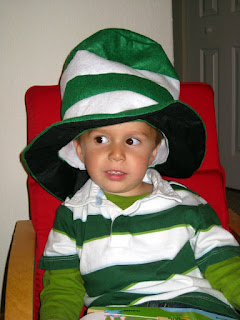Norway’s impact on Irish heritage and culture. At one point each of these well-known Irish cities (Dublin, Cork, Wexford, Limerick, Howth and Fingall) were Norwegian/Viking settlements.
In fact the Viking/Irish interaction was so well known it was not only documented in Viking saga’s, it was also detailed in the Annals of the Kingdom of Ireland by the Four Masters the Annals of Clonmacnoise and The War of the Gaedhil with the Gaill. Further accounts can be found in the arabic writings of the accounts of Ibn Ghazal.
In the 700s, pressure on land in Scandanavia had forced many nobles and warriors to seek land elsewhere. Some of these were younger sons, who stood to inherit nothing of their father's estate. Noblemen with little to lose began to gather together groups of warriors and go down the coast pillaging settlements. With the invention of Viking long boats, the raiders eventually began reaching further across the cold waters of the North Sea. By the late 700’s the Vikings were finding themselves on the shores of modern day England and Ireland.
However, this raiding period would not last long, and by 950 the Vikings had stopped raiding in Ireland altogether and developed instead as traders and settled in the lands around their towns. It was during this time that Norwegian culture really affected Ireland by providing place names, like Dublin, Cork, Limerick, Waterford, Wexford, Strangford, Leixlip, Carlingford, Youghal, Howth, Dalkey and Fingall [an area of modern-day Dublin]. Also a few of their words were also adopted into the Irish language.
So, today, when you celebrate St Patrick’s Day with a green beer and an old folk song, be sure to offer at least one toast to Norway.
here is some other interesting info:
Olaf of Norway
Attribution: JimmyMac
995 - 29 JUL 1030
KING AND PATRON SAINT OF NORWAY
Olaf Haraldsson was king of Norway from 1015 to 1028 AD, and he was known during his lifetime as Saint Olaf. His mother was Asta Gudbrandsdatter and his father was Harold Grenske, thus he was raised as a pagan and became a Viking warrior in the Baltic region in his earlier years and the country’s patron saint who achieved a 12-year delay from Danish domination and extensively increased the acceptance of Christianity in Norway. Norway’s first national legislation is considered to be his religious code of 1024.
http://www.flickr.com/photos/_4cryingoutloud/3586341516/
http://heritage-key.com/ancient-london
How to celebrate the Great Day Abroad
If you can't make it to Ireland for St Patrick's Day, then here are some ideas on celebrations around the world:
- If you're in London and don't know where to go, head off to the Duke of Wellington on Eaton Terrace (The Iron Duke, as he was otherwise called, was Irish) behind Sloane Square. It's fab, has a wonderful Irish landlord and used to boast the only French barman with an Irish accent in the world.
- St Patrick's day in Norway will be if not best, then most expensive St Patrick's day ever. All things start out as they're supposed to, in that Irish pubs seem to follow you around the world no matter where you go. After a serious afternoon warming-up session of several pints of Guinness you'll realise all of a sudden that the bartender has given you a slip of green paper every time you buy a pint of the black stuff. Beer isn't exactly cheap in Norway, so you may be thinking that enough vouchers will entitle you to a free pint. Unfortunately, this isn't the case - the tickets are for a lottery which is usually drawn just before closing time to ensure that you stay and drink even more excessively-priced pints. By the time the raffle is drawn, most people are too drunk to see their hands let alone see if they've won a prize.
- If you want to be Irish for a day in urban Eastern Canada, St Patrick's Day is celebrated in numerous ways. Among the most popular of all activities is that people wear green stuff at least somewhere on their body - if you don't have a plethora of green shirts and trousers, green underwear will suffice but be prepared to prove their colour. Then, no matter how cold it is -10°C, 0°C or -20°C, a parade is held with everyone taking part wearing suitably Spring-like attire. Drinking starts at the crack of noon which usually means taking time off work.
- The US celebrates St Patrick's Day in much a similar way to Canada. Most large cities have a block party, with live bands - although they're rarely Irish themselves. You'll have to find a good Irish pub in the neighbourhood for that - and a source of flowing Guinness or Harp's. School children take the green attire thing a bit further; anyone not wearing at least some bit of green is subject to pinching by their properly-clad peers. Another tradition that is peculiar to the States is the consumption of vast quantities of cabbage and corned beef.
- All over the world, as a testament to the industriousness and widespread emigration of the Irish, everyone becomes Irish for a day. From Bangkok to Adelaide, a typical St Patrick's day party may include Irish nationals celebrating their heritage, heaving a few pints of stout. Another favourite way of celebrating St Patrick's day is going to watch a band playing folk music, with accompanying bodhrans, fiddles, and all. Everyone knows the words, so can sing along, or can make them up as they go along.





No comments:
Post a Comment